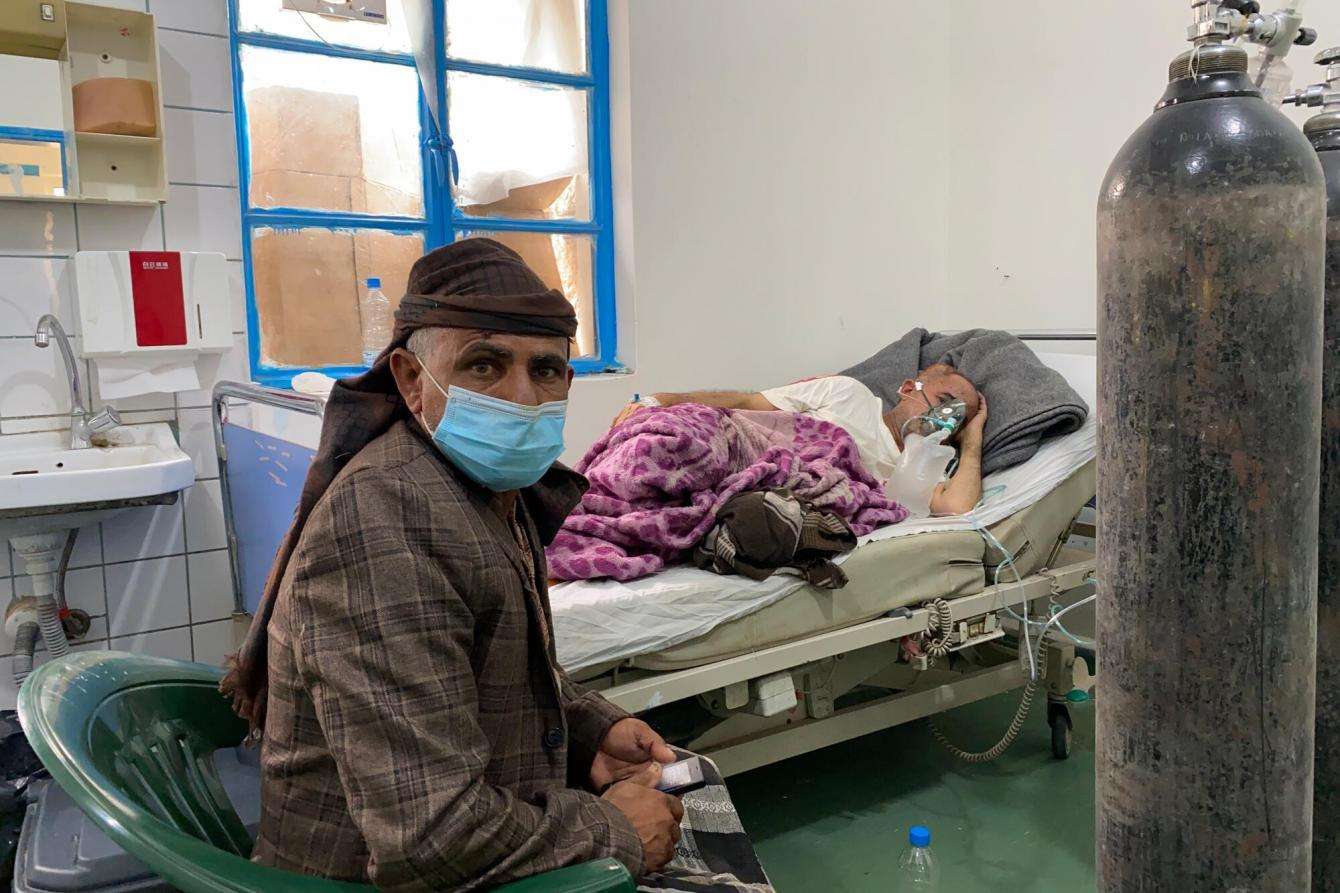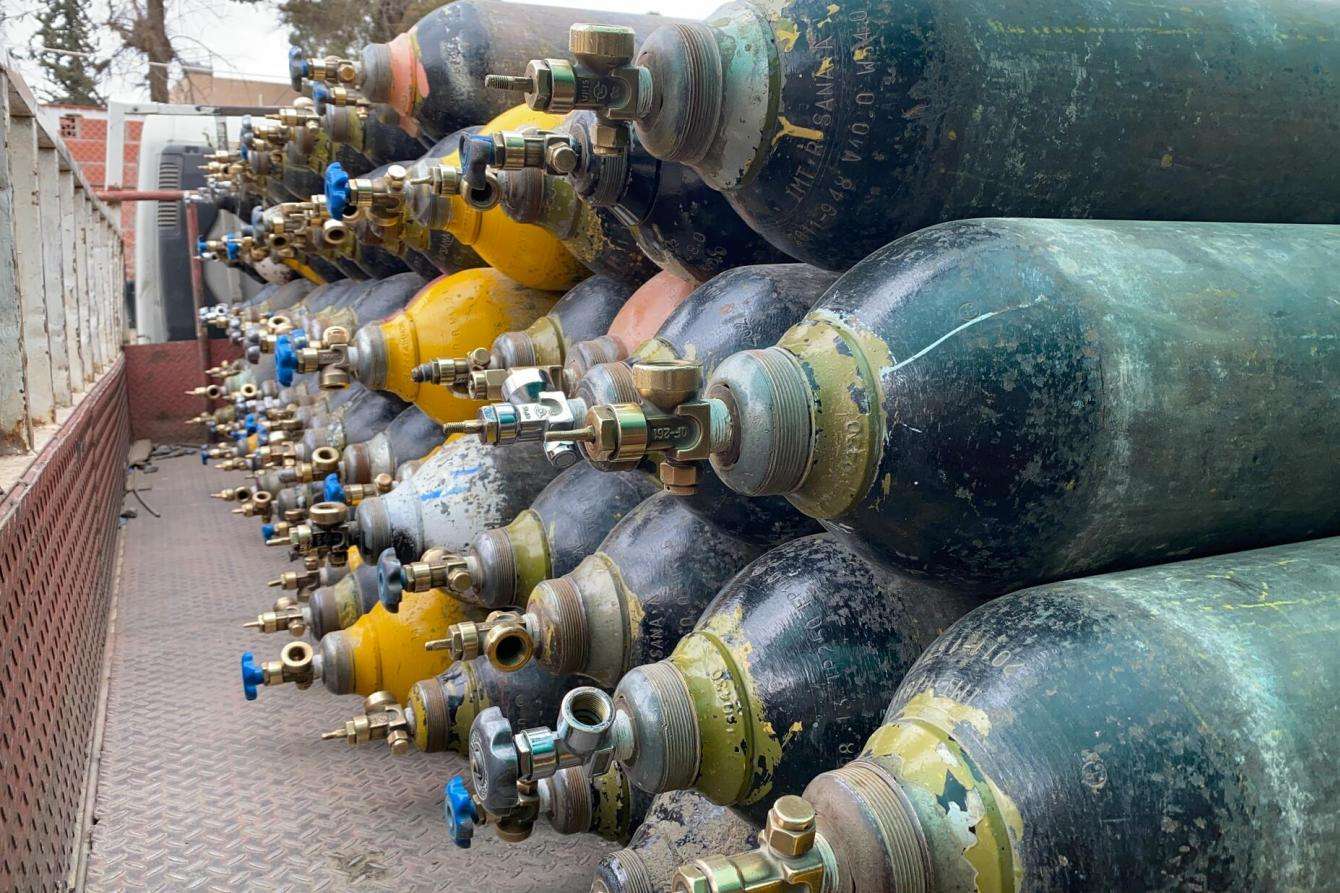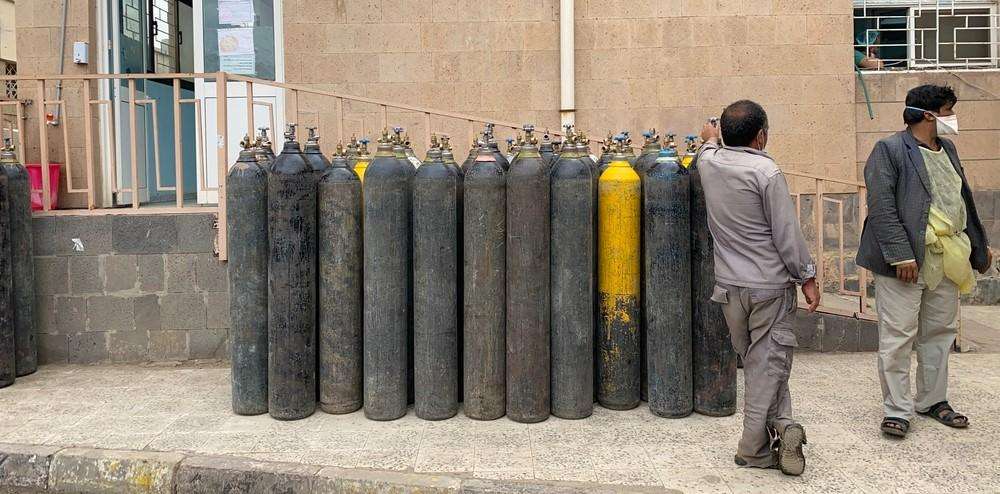Inside al-Kuwait hospital in Sana’a, Yemen, a chain-link fence separates two worlds. Outside the fence, COVID-19 has barely been acknowledged by authorities, and many people don’t even believe it exists. But inside the fence, where wards are filled to capacity with people breathing from oxygen cylinders, the reality of the pandemic is impossible to avoid. And Yemen’s battered health system, decimated by years of conflict, is unable to keep pace with spiking case numbers.
The COVID-19 treatment centre run by Doctors Without Borders/Médecins sans Frontières (MSF) at al-Kuwait hospital is one of very few places in Yemen where COVID-19 care is available for free. Its 64-bed ward and 15-bed intensive care unit have been full since the beginning of April, when the second wave of infections began. Sick people are often also waiting in the 8-bed emergency room for a space to open. In the past few months death rates among elderly patients and those with chronic diseases like diabetes have soared at the facility.

"We live in a country at war, there is no good health system.”
“A month ago I became sick,” said Khaled, 43, from Sana’a. “I had a heavy cough, and I saw a doctor who told me I might have COVID-19. After a week, my oxygen levels were getting lower and lower and I started fainting. I was admitted to the intensive care unit and had to stay there 16 days. The disease is really scary.”
Khaled said another reason he was so scared was because he knew that in Yemen the options for healthcare are limited. Six years of war caused the collapse of the country’s health system, and large parts areas have no capacity at all to respond to the spreading COVID-19 outbreak.
“We live in a country that’s at war, there is no good health system. The situation in general is deteriorating,” said Khaled. “The medications that I got treated with would have cost around $8,500 [at a private clinic]. I would never have been able to pay that. I would have died.”
People are also being forced to make dangerous trips over long distances to reach care. “When my father Mohammed got sick I took him to the hospital in Rada’a, but they could not do anything for him there,” said Ali, 36, from al-Bayda, a governorate more than 62 miles southeast of Sana’a. “I drove him to Dhamar, which took three hours, and all the way I was constantly shifting my gaze between the road and my father, I was so worried about him.”
In Dhamar Mohammed did not find a hospital that could treat his father either, so he had to hire an ambulance to bring him to Sana’a, yet more hours away. “We had to spend around $70 to get enough fuel to get to Sana’a,” said Mohammed, 40. “We drove with our own car from Rada’a to Sana’a, which took around four hours. We tried to find an oxygen bottle to use for the trip, but we could not find one anywhere. In Rada’a there are a lot of people sick.”
Every day a steady stream of families arrives at the emergency entrance in front of the fence outside al-Kuwait hospital. They come in taxis and old cars, the sick people exhausted, sometimes hooked up to an oxygen bottle and helped into a wheelchair before being admitted. But many more cannot afford the huge sums of money required to come from places as far away as al-Bayda and Hajjah governorates.
“There are many critical cases with symptoms of COVID-19 coming from far away,” said Mohammed al-Ghabri, MSF’s medical referent for the treatment center. “Both our male and female wards are full, and we are using 500 oxygen cylinders a day in addition to the oxygen plant. The needs are huge— it’s a real struggle to provide all this oxygen. But at least this year the disease is more familiar, we know how better to treat people.”

Still, it is hard for the medical teams to save people if they arrive to the hospital too late, and many do, either because they have come from far away or because they have delayed coming. Mistrust and fear of medical facilities is still widespread.
“A hellish illness”
With little information about COVID-19 made available by the authorities in northern Yemen, people are left to decide for themselves how seriously to take the disease and what to do if they or one of their loved ones get sick. “Last year I didn’t really believe that there was COVID-19,” said Saif, whose father 65-year-old father, Saleh, was treated for the disease at al-Kuwait.
“The biggest mistake I made was just bringing medicine for him from the pharmacy. I should have got a medical consultation for him,” he said. “But even when I brought him to al-Kuwait the first time, they said he needed to be admitted but I didn’t want him to be in the hospital. I thought to have a nurse come for him at home would be enough. Eventually, I was forced to bring him back here. When I saw my dad [and] the other patients here, I really began hoping that this disease will stop spreading. It is a hellish illness.”
“I wasn’t really aware of what COVID-19 was and so I did not take precautions,” said Khaled, who recovered at al-Kuwait. “Now I know I have to apply these measures and protect my family, because I have already experienced death. I don’t want any of them to get sick.”




